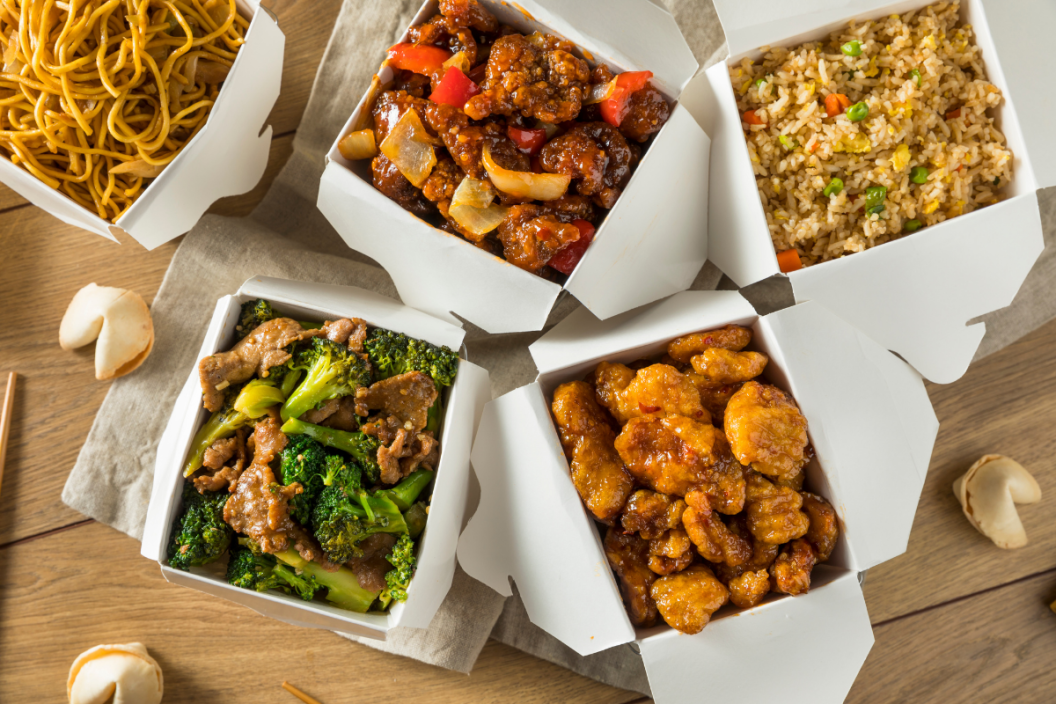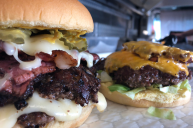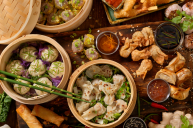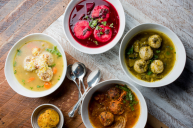Growing up as an American Jew, it may come as a surprise that the Christmas holiday is one of my favorite days of the year. The stereotype of Jewish Americans is that we celebrate "Jewish Christmas" by dining in a Chinese eatery or ordering Chinese take-out. Eating Chinese food on Christmas has become such an American staple, that even non-Jews participate.
For my family, we preferred to dress up in our "Christmas Best" and make the trek out to Chinatown in Los Angeles. We lived in a suburb about 40 minutes south of LA, and according to my dad, Christmas was the best day of the year to travel since most people were home with family.
My dad, mom, and I would pile into the car and make our way to our favorite Chinese restaurant, Yang Chow. They're most famous for their Chinese-American specialty, slippery shrimp. While the name may not sound too appetizing, the crispy deep-fried shrimp are to die for. The sauce is really what makes the shrimp a stand-out dish. Contrary to traditional Chinese cuisine, the sauce is finished with a classic American condiment, ketchup.
Along with the slippery shrimp, we ordered some of their Sichuan dishes. My dad is a spice king and the more chilis, the better. As a child, I remember shuddering at the thought of eating anything spicy, instead opting for chow mein and lo mein noodles.
To round out our celebratory meal, we indulged in wonton soup, sweet and sour soup, and a variety of vegetable egg rolls and dumplings. While this may sound excessive for two adults and one child, but, 'tis the season to overindulge and truly embrace the Christmas spirit.
Chinese Food and American Jews
Eastern European Jewish immigrants and Chinese immigrants were two non-Christian groups who came to America. When these groups first arrived in New York City, they became neighbors on the Lower East Side of Manhattan. Upon arrival, both groups hadn't yet assimilated into the Western culture of celebrating Christmas.
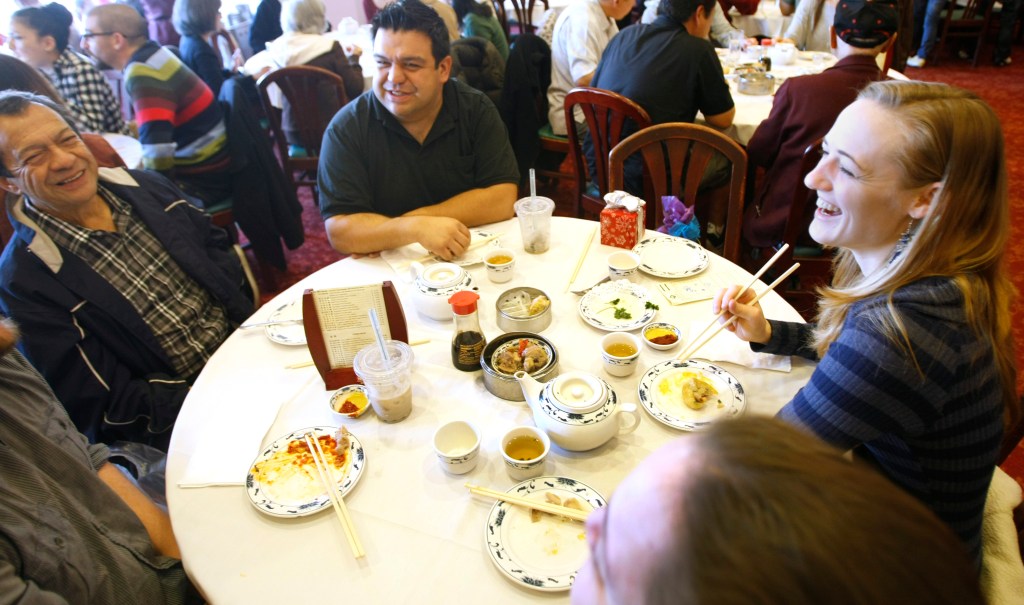
(Photo by Kirk McKoy/Los Angeles Times via Getty Images)
Like many immigrants, the Jewish people struggled with how to assimilate into this new world and celebration. Over time, Jews became a key element in helping spread Christmas cheer to all Americans, regardless of faith.
Rabbi Joshua Eli Plaut's book, A Kosher Christmas, details the ways in which Jews helped shape the Christmas traditions we know and love today.
Some of the most popular Christmas songs were even written by Jewish artists. Rudolph the Red Nose Reindeer, Have a Holly Jolly Christmas, and Let it, Snow! Let it, Snow! Let it Snow! are just a few that come to mind.
Why We Eat Chinese Food on Christmas
Jewish Americans were also behind the push to circulate Hanukkah postage stamps. Today, you can choose to send your holiday card with a myriad of celebratory designs, including Hanukkah-themed stamps.
Chinese restaurants were often the only option open on Sundays, Christmas Eve, and Christmas Day. Chinese restaurants, therefore, became a safe haven for Jewish families to go and enjoy their version of a Christmas dinner.
Jews immigrating to America at the beginning of the 20th century held to a strict Kosher food diet. One of the tenants of eating Kosher is to not mix dairy and meat at the same meal. Eating shellfish is also not permitted. To truly be considered kosher, the food must also be blessed by a certified Rabbi.
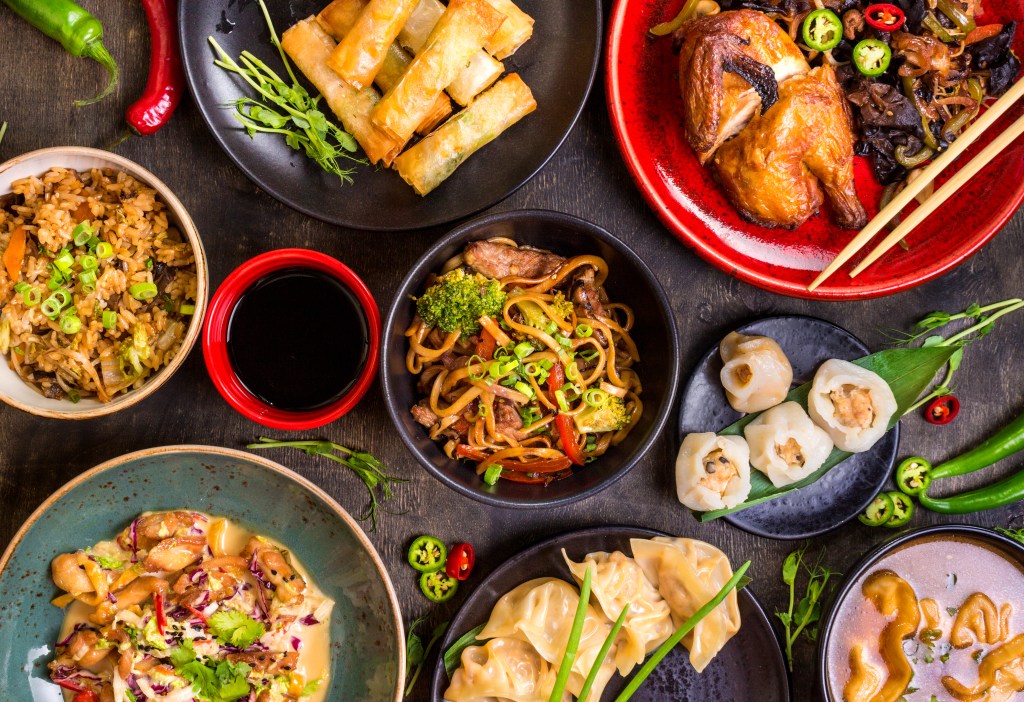
When Jews arrived in New York City, they were surrounded by non-kosher cuisines. Cuisines like Italian and Mexican food were almost impossible for Jews to eat since most dishes contain meat and dairy.
Chinese food on the other hand seldom uses dairy in their cooking. Jews could then trick themselves into eating "kosher" food by dining at Chinese restaurants. Fewer Jews today follow strict kosher laws, as many have become less religious and more secular over time.
Chinese Food on Christmas Today
They say all good things must come to an end, but luckily that's not the case for Chinese food on Christmas. The tradition has become so ingrained in American culture, that some restaurants are too packed on actual Christmas. It's very common now to extend the holiday and eat Chinese food for New Year's and New Year's Eve.
For many restaurant owners, Christmas can be busy. But for Chinese restaurants, it's often their busiest and most lucrative day of the year.
The classic dishes like General Tso's chicken, fried rice, and chop suey remain popular for the Christmas crowd. Some restaurants even offer extravagant specials like pu pu platters with heaping mounds of meat and seafood.
Celebrating Christmas these past several years looks quite a bit different than it did as a child. I no longer live in Los Angeles and sadly, Yang Chow closed our favorite location. Some years our family gets together and other years we are surrounded by friends that are our makeshift family.
What remains constant, however, is continuing the traditions that brought unlikely communities together. No matter where I am during Christmas, I know I'll be indulging in a Chinese food feast.
